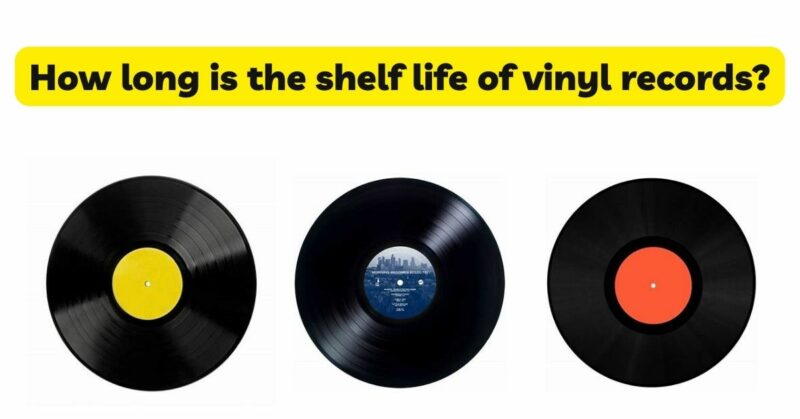Vinyl records have stood the test of time, captivating music enthusiasts with their warm sound and tangible appeal. As a vinyl collector, it is crucial to understand the shelf life of vinyl records to ensure their long-term preservation. In this article, we will explore the factors that influence the shelf life of vinyl records, discuss the potential risks and causes of degradation, and provide tips for maintaining and prolonging the lifespan of your vinyl collection.
Understanding Vinyl Composition:
Vinyl records are made from polyvinyl chloride (PVC), a synthetic plastic material. The quality and composition of the vinyl, along with other additives and manufacturing processes, play a significant role in determining the overall durability and shelf life of the record.
Factors Affecting Shelf Life:
- Environmental Conditions:
The storage environment significantly impacts the longevity of vinyl records. Exposure to extreme temperatures, high humidity levels, direct sunlight, and rapid temperature fluctuations can accelerate the degradation process. It is important to store vinyl records in a controlled environment, ideally with temperatures between 50°F to 70°F (10°C to 21°C) and a relative humidity level of 40% to 50%.
- Handling and Care:
Proper handling and care of vinyl records contribute to their longevity. Mishandling, dropping, or placing excessive pressure on records can lead to physical damage, such as warping or cracking. Fingerprints, oils, and dirt can also impact the playability and sound quality of the record. It is essential to handle records with clean hands, store them in protective sleeves, and avoid placing them on surfaces without proper support.
- Playtime and Usage:
The frequency of play and the number of times a record is played can affect its shelf life. Each play causes wear on the record’s grooves, gradually affecting the sound quality. Excessive playtime without proper maintenance and care can accelerate groove wear, leading to increased surface noise and compromised audio fidelity. Proper cleaning and maintenance of records are essential to minimize wear and extend their shelf life.
- Storage and Protection:
The way records are stored and protected also influences their shelf life. Storing records vertically in dedicated record storage units or shelves helps maintain their structural integrity and reduces the risk of warping. Using inner and outer protective sleeves can shield records from dust, scratches, and other potential damage. Adequate support and proper spacing between records are crucial to prevent leaning, toppling, or surface damage.
Tips for Prolonging the Shelf Life of Vinyl Records:
- Store records in a controlled environment: Maintain a consistent temperature and humidity level in the storage area to prevent the vinyl from warping, mold growth, or other forms of degradation.
- Handle records with care: Avoid mishandling records and touching the playing surface. Handle records by their edges or inner label to minimize the risk of fingerprints, oils, or scratches.
- Clean records regularly: Implement a regular cleaning routine to remove dust, dirt, and debris from the record’s surface and grooves. Use a carbon fiber brush or a record cleaning kit to maintain optimal sound quality and extend the shelf life of the record.
- Store records in protective sleeves: Use high-quality inner sleeves to prevent dust buildup, and outer sleeves to shield records from environmental elements. Acid-free inner sleeves are recommended to reduce static and potential surface damage.
- Store records vertically: Vertical storage helps distribute weight evenly and reduces the risk of warping. Invest in proper record storage solutions, such as shelves, crates, or storage units designed specifically for vinyl records.
- Rotate the collection: Periodically rotate the records within your collection to distribute the weight and minimize prolonged pressure on specific records. This practice helps maintain the structural integrity and playability of the entire collection.
Conclusion:
The shelf life of vinyl records depends on various factors, including environmental conditions, handling and care, playtime and usage, and storage methods. By following best practices, such as maintaining a controlled storage environment, handling records with care, regular cleaning, proper storage, and protection, you can extend the shelf life and preserve the quality of your vinyl collection. Remember that vinyl records are physical objects that require proper care and maintenance to ensure their longevity. By taking these precautions, you can enjoy the timeless pleasure of vinyl records for many years to come, preserving their sonic beauty and historical value.


